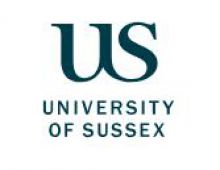An article titled “Academic Grievance Studies and the Corruption of Scholarship” has recently been published in Areo magazine.
It describes what Helen Pluckrose (editor of Areo), James A. Lindsay (who holds PhD in physics) and Peter Boghossian (an assistant professor of philosophy) term a “reflexive ethnography” of particular academic fields, in which they wrote 20 Sokal-style hoax papers and submitted them under pseudonyms to peer-reviewed journals.
The papers cover a variety of topics including “rape culture” in urban dog parks, fat bodybuilding and men anally penetrating themselves with sex toys.
The authors report that seven were accepted and four of these published online, while seven were “still in play” when the hoax was revealed, and six “retired as fatally flawed or beyond repair”.
Pluckrose et al. claim to be “left-leaning” scholars who position themselves against what they pejoratively call “grievance studies”. This encompasses a variety of disciplines including sociology, anthropology, gender studies and critical race studies. Their key target is described as “social constructivism”, which seems to consist of any attempt to demystify categories usually defined as “natural” (so they actually mean social constructionism).
Some of the tenets they take issue with are: the idea that gender inequalities are not to do with biology, the idea that obesity is a “healthy and beautiful body choice”, specific theories such as standpoint epistemology, and specific methodologies such as autoethnography.
There’s nothing wrong with academics holding each other up to scrutiny – it’s healthy and necessary. But despite their claim to be engaging in “good-faith” critique, it’s clear that Pluckrose, Lindsay and Boghossian actually aim to undermine fields that they have political – not scholarly – objections to.
First, there is plenty of scholarship within “grievance studies” that does not take a social constructionist perspective, and plenty outside it that does.
Second, as they have targeted only journals in “grievance studies” fields and not others, there is no way to know whether the problems they identify are specific or more general across the sector.
Indeed, despite their professed mission to restore methodological rigour where they feel it’s lacking, their own study incorporates no control group at all. Most of the hoaxed journals are gender studies ones, and Boghossian has targeted gender studies before. This was with a hoax piece entitled “The Conceptual Penis as Social Construct”, submitted to a journal which turned out to be pay-to-publish.
The current hoax features papers that are certainly outlandish. But some are simply based in premises (eg, social constructionism) or political principles (eg, trans equality) that the hoax authors find problematic.
For instance, a paper titled “An Ethnography of Breastaurant Masculinity” argues that establishments such as Hooters help to construct problematic forms of masculinity (whereas the hoax authors seem to think that men are just biologically programmed to like looking at breasts).
In their description of the aims of this particular hoax, they say: “To see if journals will publish papers that seek to problematize heterosexual men’s attraction to women.” Well, yes – problematising heterosexual attraction is a key premise on which gender studies scholarship is based.
Like the hoax itself, the authors’ reporting of it is also riddled with misrepresentation. Editors of one of the targeted journals tell me that the paper submitted to them was recorded as a desk reject and did not go out to reviewers and was not, as the authors claim, given a revise and resubmit. Pluckrose et al report that they received four invitations to peer review other papers “as a result of their exemplary scholarship”, but neglect to mention whether these were merely autogenerated from a list of previous submitters to the journals in question.
The exposure of the hoax ends with a demand that all major universities review various areas of study (gender studies, critical race theory, postcolonial theory and other disciplines such as sociology and anthropology) “in order to separate knowledge-producing disciplines and scholars from those generating constructivist sophistry”.
This is a chilling statement that will certainly feed right-wing attacks on gender studies such as those that have recently happened in Hungary, as well as the targeting of feminist and critical race scholars by the alt-right. Pluckrose et al claim that this is not their intention, but given their various misrepresentations, you’ll forgive me if I don’t believe them.
As a scholar in “grievance studies” myself, I think the hoax says more about conditions in the sector than anything else.
Pressure to publish has created an increasing volume of submissions (and arguably also a drop in standards). Unpaid peer review often has to be squeezed in between swelling workload demands.
If we’re truly worried about academic rigour, we might want to start there.
Alternatively, we could think less about the flaws of “grievance studies” and more about how academic work has contributed to legitimate grievances by bolstering neoliberal economic reforms or neo-imperialist foreign policy.
To me, that’s corruption of scholarship.
Alison Phipps is professor of gender studies at the University of Sussex.
POSTSCRIPT:
Print headline: The ‘grievance studies’ hoax betrays a big beef
Register to continue
Why register?
- Registration is free and only takes a moment
- Once registered, you can read 3 articles a month
- Sign up for our newsletter
Subscribe
Or subscribe for unlimited access to:
- Unlimited access to news, views, insights & reviews
- Digital editions
- Digital access to THE’s university and college rankings analysis
Already registered or a current subscriber?










